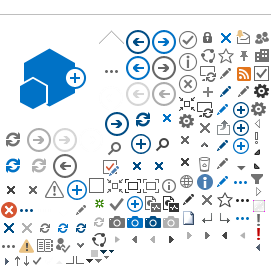Awards of Merit
Al Negwa- Qatari Development Program

The mission of the Al Negwa program is to attract, engage, develop and retain Qatari nationals in line with the Qatar National Vision 2030. Al Negwa aims to offer a variety of entry points into HMC for Qatari nationals with different levels of academic qualifications e.g. from school graduates up to university graduates.
Five different levels for development were identified:
1) Elementary –without a high school diploma
2) Foundation – high school diploma or diploma and bachelor’s degree cohorts
3) Development – develop current Qatari staff members requiring job specific training
4) Aspiring Leaders – application process to develop Qatari staff in line with the necessary skills, knowledge and behaviors to be outstanding leaders at HMC
5) Advanced Leaders – high performing Qatari staff working to a tailored development plan for advancement to senior HMC executive positions.
The focus of the program is to create a capable and skilled workforce supporting 'Best Care Always'.
